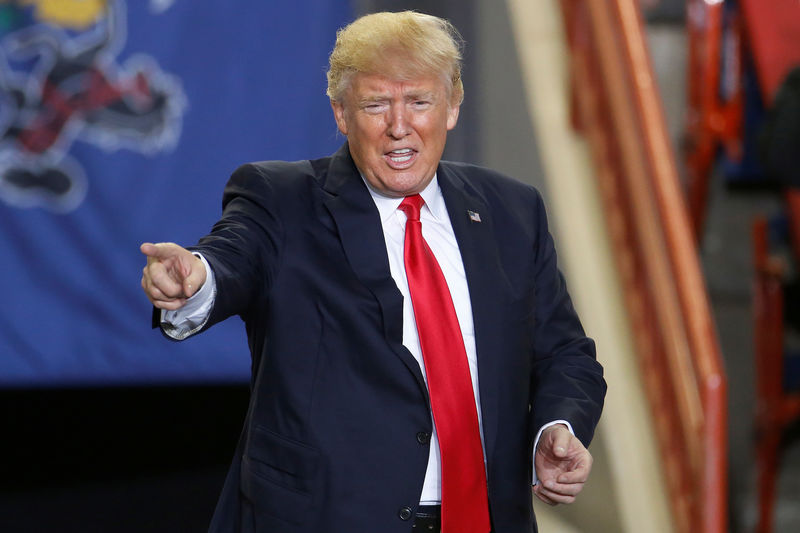WASHINGTON (Reuters) - Donald Trump has shown a fascination with populist 19th-century U.S. president Andrew Jackson since he has occupied the Oval Office, hanging "Old Hickory's" portrait in the Oval Office, visiting his plantation in Tennessee and placing a wreath at his tomb.
In an interview that aired on Sirius XM satellite radio on Monday, Trump suggested that if Jackson had governed a little later than his 1829-1837 presidency, the American Civil War might have been averted. Trump also questioned why the bloody conflict had to happen.
"Had Andrew Jackson been a little later, you wouldn't have had the Civil War. He was a very tough person, but he had a big heart," Trump told Sirius XM. He said that although Jackson was a "swashbuckler," after his wife died, Jackson visited her grave every day.
Jackson, a slave owner who was instrumental in the forced removal of Native American tribes from the U.S. Southeast in the so-called Trail of Tears, died nearly 16 years before the start of the Civil War.
But Trump told Sirius XM that Jackson "was really angry that he saw what was happening with regard to the Civil War.""He said, 'There's no reason for this,'" Trump said. "People don't realise, you know, the Civil War — if you think about it, why? People don't ask that question, but why was there a Civil War? Why could that one not have been worked out?"
It was not clear what Trump believed Jackson would have done to avert the 1861-65 conflict, which cost 620,000 lives.
In a tweet later on Monday, Trump acknowledged that Jackson had died 16 years before the start of the war but said he "saw it coming and was angry. Would never have let it happen!"
The events leading to the Civil War have been extensively researched, with slavery being one of the root causes. Slavery and its legacy have been a source of division in the United States since.
By the time of his death, Jackson owned about 150 slaves who lived and worked at his plantation, the Hermitage. During his time in office, Jackson denounced the growing activity of abolitionists seeking an end to slavery.
Trump and his supporters have likened his election victory to Jackson's triumph in 1828, when Jackson became the first U.S. president from what was then the western frontier of Tennessee.

The populist Democrat famously opened the White House to all comers after his inauguration, turning the normally dignified executive mansion into a mob scene.
